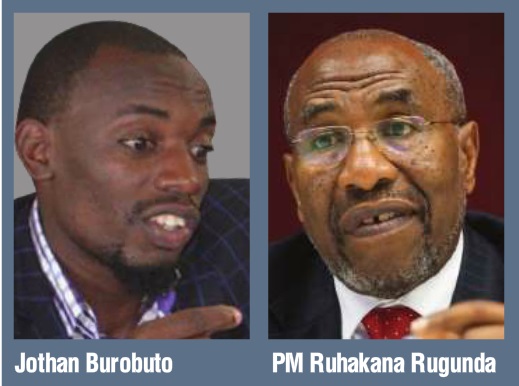
Prime Minister Ruhakana Rugunda in June, and acting on President Museveni’s orders, appointed a committee to draft a fees policy for the university. The Stakeholders Committee released a report that was approved by the University Council on July 13.
But the demand for salary raises could not have come at a worse time for the government. Although the economic fundamentals appear firm on paper – with inflation at about 7.5%, growth projected at about 5.5%, and the macro-economy maintaining a wobbly stability – in reality the economy is reeling from negative sentiments from the business community, bankers, and industrialists reportedly seeking bailouts for their ailing businesses.
The Committee noted that Makerere has experienced disruption of her activities for many years due to persistent student unrest caused by disagreements between students and the University administration over fees payment policies, which the students considered to be oppressive.
Although Makerere University offers the most competitive fees structure compared to private universities, it has been hit by numerous strikes over fees.
Some courses at Makerere, such as the Bachelor of Science, cost as low as Shs 400, 000 per semester for students from East Africa and South Sudan and about Shs 1, 272,600 for international students. Although all students must pay additional functional fees amounting to Shs 586, 500, which cuts across all courses at the University, the total is still far below the fees paid even by secondary school students.
The most expensive course at Makerere, the Bachelor of Science in Dental Technology, costs Shs 2 million for students from East Africa and South Sudan, and about Shs 3,500,000 for international students. The same courses cost far more at private universities and the Makerere University managers have sought permission from the government to raise them in vain. The government prefers to keep the Makerere fees low for political reasons. One of the considerations is how the students will react to a fees increase if they continue to strike over the current low fees. Faced with the challenge of providing quality education on a shoe-string budget, the university administrators are now demanding that the little be paid in time – at the very least.
The Fees Committee report shows that functional and tuition fees paid by students contribute a major part of the University’s budget, currently about 40%.
Meanwhile, the government contribution to the budget is used mainly to partially finance the wage bill and academic research. But the university administrators want the government to fully cover the wage bill of Shs 2.5 billion per month so that the student fees go to running the university.
The chairman of the Stakeholders Committee, Thomas Tayebwa, who is also a member of the University Council, argues that failure to pay wages has led to teaching staff protests.
“Some lecturers have not submitted students’ marks for the last one year,” he told The Independent.
Although Makerere University has 2,780 approved teaching staff positions, only 1,484 or 53.4% positions were filled by end of 2015. The 1,296 or 47% posts remained vacant mainly because the university lacks money to pay more staff.
Currently, the day -to -day running of the university is made possible with the fees paid by students. Moreover, the university still contributes an average of Shs 21 billion to the wage bill from the same fees.
A background to the old fees policy indicates that the University runs semesters of 17 weeks each and the fees policy was designed to take into account the ability and convenience as well as required cash flow to run the university operations.
New fees structure
Under the current structure, the students are required to pay 60% of tuition fees by the 6th week of each semester and 100% by the 10th week. They are also to pay full functional fees by the 6th week. But the students resisted this policy resulting in a strike. The government consequently put the policy on hold.
Under the new fees policy, new students must pay all functional fees and 60% of tuition before getting their admission letters.
Continuing students are required to pay only Shs 200, 000 as commitment fees at least by the 3rd week of the semester. Failure to pay on time attracts a Shs 20, 000 surcharge for late payment.
They are required to have paid 100% fees by the 12th week of the semester. However, a student who fails to pay may apply to the Vice Chancellor for permission to pay the fees by the 14th week of a semester with a surcharge of 5% on the outstanding balance.
An incentive to be determined by Council is to be introduced for students who complete payment of fees 100% by the sixth week of the semester. The deadline for payment of all fees and full registration shall be the 12th week of a semester. Other fees such as re-take fee and fees for improvement of course mark are to be handled separately.
Initially, the continuing students were required to register by the third week and failure to do so meant that one would register after the payment of full fees. The report recommends that registration is de-linked from payment of fees and all students shall register in the third week of a semester. Registration will be open to everyone up to the 10th week of the semester and there will not be late registration charge, in case of any mistakes.
The university is currently getting feedback on the new policy, which point to the fact that it has been well-received. However, unless it is nipped in the bud, the strike by the non-teaching staff is what could derail the start of the new semester.
****
editor@independent.co.ug
 The Independent Uganda: You get the Truth we Pay the Price
The Independent Uganda: You get the Truth we Pay the Price



